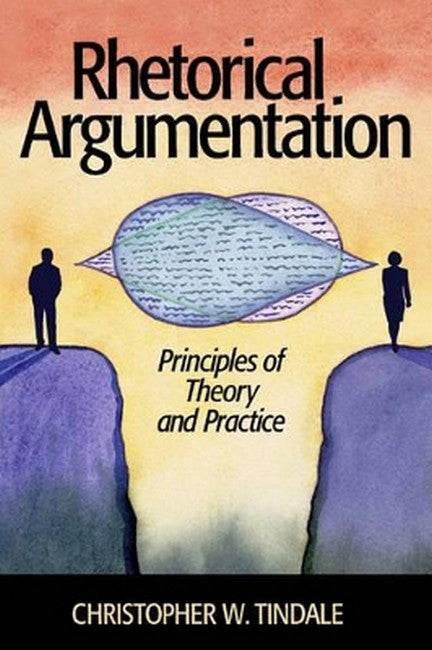Christopher Tindale (Ph.D. & M.A., University of Waterloo; B.A., Wilfrid Laurier University) teaches and conducts research in the areas of argumentation theory, ethics, and ancient philosophy. Since 2000, he's been an editor of the journal Informal Logic: Reasoning and Argumentation in Theory and Practice, and he presently sits on the editorial board of Controversia. He is the author of Acts of Arguing: A Rhetorical Model of Argument (SUNY Press, 1999), co-author of Good Reasoning Matters, Third Edition (Oxford University Press, 2004), and co-editor of Argumentation and Its Applications (forthcoming CD-Rom) and two other CD-ROMs, Argumentation at the Century's Turn and Argumentation and Rhetoric. Recent work of his has appeared in the following journals: Argumentation; Informal Logic; ProtoSociology; Social Theory and Practice. In addition to teaching at Trent University, in 2001-2002 he was a research fellow at the Centre for Interdisciplinary Research), Bielefeld, Germany.
Request Academic Copy
Please copy the ISBN for submitting review copy form
Description
1. Introduction: A Rhetorical Turn for Argumentation Alice's Predicament Models of Argument Beyond the Logical Beyond the Dialectical Rhetoric and Rhetorical Argumentation The Path Ahead 2. Argument as Rhetorical... Introduction: Rhetoric's Origin Argument's Origin Rhetoric and Argument in Fifth- and Fourth- Century Greece Sophistic Argument Sophistic Argument and the Notion of 'Fallacy' Rhetoric as Invitational 3. ...And Rhetoric as Argument Introduction: Rhetorical Figures and Arguments Reboul on Figures and Arguments Perelman and Olbrechts-Tyteca Fahnestock's Figural Logic Figures as Arguments Conclusion 4. Rhetorical Contexts and the Dialogical Introduction: Dialogue and Dialogues Bakhtin's Terminology Dialogic Argument Reflections on a Bakhtinian Model Examples Conclusion 5. Martians, Philosophers, and Reasonable People: The Construction of Objective Standards Introduction How Martians Reason The Martian Standard and the Problems of Evaluation Bakhtin's Superaddressee Perelman and Olbrechts-Tyteca's Universal Audience Conclusion 6. Developing the Universal Audience Introduction: Why the Universal Audience Fails Reading the Universal Audience: Two Views Reappraising the Universal Audience Applying the Idea of a Universal Audience 7. The Truth about Orangutans: Conflicting Criteria of Premise Adequacy Introduction: Deep Disagreements Between Logic and Rhetoric Hamblin's Orangutans The Rhetoric of Philosophy: Metaphors as Argument Acceptability Conclusion 8. Rhetorical Conclusions From Protagoras to Bakhtin The Rhetorical Audience Goals of Rhetorical Argumentation Conclusions Without Conclusiveness

